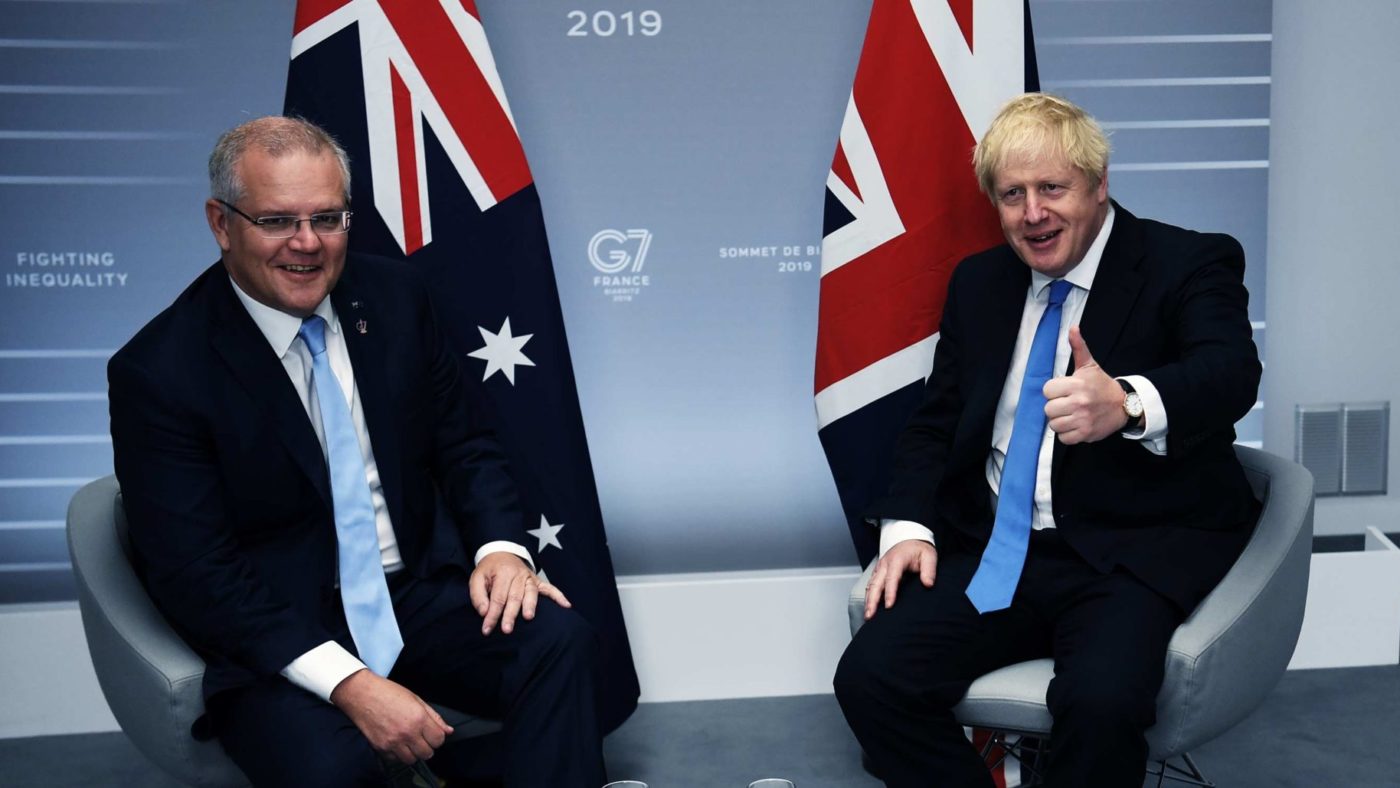Britain has had an agonising four years debating how to leave the European Union. But Brexit was never supposed to be about what the UK was leaving, but rather what she could gain as an independent, sovereign nation.
Trade Secretary Liz Truss’ launch yesterday of official trade talks with Australia and New Zealand, and joining the CPTPP, marks a seminal moment for a Global Britain. Finally, the potential of an independent trade policy can come to fruition.
Australia, New Zealand and the UK speak the same language and have deeply entwined histories. We fought together in humanity’s darkest hour. We share the Westminster democratic system, a head of state, the common law and respect for diversity, modernity and freedom.
This shared journey made the UK’s decision to join the European Economic Community in 1973 a moment of stinging betrayal for Britain’s Commonwealth cousins. It marked both a symbolic turning away from historical bonds and the imposition of substantial barriers to trade. Before then quality antipodean produce was found across British supermarket shelves, afterwards this was made too expensive by tariffs or impossible by quotas. Both countries had to rapidly find new markets. The transition was painful, but ultimately successful.
While Aussie and Kiwi produce has now found a new home in the Indo-Pacific, and is unlikely to now flood onto British shelves, there could still be substantial value to slashing tariffs to zero and abolishing quotas so goods can flow freely. We can Axe the Tim Tam Tax, which robs the British people of affordable access to one of the world’s most delightful treats. Dropping tariffs would mean making the one-in-five bottles of wine sold in the UK that come from Australia even more affordable. In reverse, it would also mean greater exports of British cars, and pharma and medical products to Australia and New Zealand.
As modern, service-orientated economies, perhaps the biggest opportunities will be from reducing “non-tariff barriers” (NTBs) to services trade. This means recognising financial and professional standards and developing best practice digital trade commitments. It also means establishing investment rules that ensure certainty, allowing Australia to serve as a launchpad for British businesses in the growth markets of the region.
As an Aussie living in London, I can also attest to the very personal dimensions. Over one million Brits live in Australia and over a hundred thousand Aussies live in the UK. But it has become much harder in recent decades and numbers of new arrivals have declined. The trade deals could expand visas and abolish unnecessary fees such as the NHS surcharge — which means working migrants are double taxed. There is also an opportunity to end the unfairness faced by Boris Johnson’s life-saving nurses: Jenny from New Zealand had to retrain upon arrival in the UK, while Luis from Portugal did not. These trade agreements can ensure recognition of qualifications of nurses, teachers, lawyers, and plumbers — making life much easier for skilled new arrivals
Not only would these deals add hundreds of millions to each other’s economies, they could well set a precedent for other agreements. The World Trade Organisation has become substantially weakened in recent years by growing barriers and lack of appointments. The deals that the UK strikes with Australia and New Zealand could provide global templates for subsequent deals between all countries and provide new impetus for broader multilateral deals in future.
Of course, free trade is not always popular. There will inevitably be loud, self-interested domestic producers fearful of foreign competition. The UK’s agricultural sector, in particular, refuses to imagine the potential benefits of greater exports and instead has been scaremongering about “animal welfare standards” in recent months.
Their forefathers, who made arguments against abolishing the corn laws in the 19th century, similarly tried to wrap their sectional interest in a broader case about superior domestic production. This has always been wrong. Food security is ensured by a diversity of trade links. But claims about animal welfare will prove even more nonsensical in the case of trade deals with Australia and New Zealand: two countries with equivalent if not higher standards than the UK’s.
There is also a high degree of alignment on other traditionally contentious issues — such as labour rights or the environment. This makes it an extremely straightforward negotiation, without many of the complexities of signing a deal with the European Union or the United States. These will more likely than not be among the first deals the UK signs.
The other less remarked, but also extremely important announcement this week was the UK’s intention to join the CPTPP – the successor to the Trans-Pacific Partnership.
CPTPP includes economies whose combined GDP is worth around US$13.5 trillion, including Canada, Chile, Japan, Malaysia, Mexico, Singapore and Vietnam. It reduces tariffs on 95% of goods between its members and sets standards on digital, data, financial, professional and business services.
If Britain does sign up, CPTPP will open up huge opportunities for UK exporters and consumers to deepen and diversify supply chains. It is also an important bulwark against China’s attempts to dominate global trade. CPTPP helps ensure the rules of the global trading order are set by liberal democratic countries — precisely what Britain should be aiming to ensure in the years ahead.
There is a big wide world out there. If the UK is to recover from the current crisis, it will be essential to grasp those opportunities.
Click here to subscribe to our daily briefing – the best pieces from CapX and across the web.
CapX depends on the generosity of its readers. If you value what we do, please consider making a donation.


